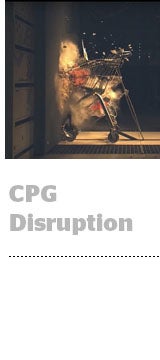The past couple of years have been tough for CPGs, as consumers move toward fresher and healthier items and ecommerce disrupts the way goods are sold.
The Q1 earnings season has only reinforced the trend. At Kellogg’s and Kraft-Heinz, net sales fell about 3% year over year in Q1 2017. Mondelez grew organically a meager 0.6% and Procter & Gamble grew 1%.
And the agencies that service CPGs are feeling the pinch.
“Unilever intends to cut down 30% of the work they’re making,” said Greg Paull, principal and co-founder of marketer consultancy R3. “Others will be along similar lines.”
Zero-based budgeting has been a popular cost-cutting method, with companies setting yearly budgets from a base of zero rather than historical benchmarks. According to a January study by Deloitte, 22% of CPGs, including Unilever, Kraft-Heinz, Mondelez and Kellogg’s, have adopted zero-based budgeting models.
As a result, agencies servicing those companies must increase efficiencies and produce measurable outcomes. That means less high-cost creative production and more performance-based campaigns and business transformation initiatives so CPGs can adapt to an ecommerce-first world.
“CPGs are trying to optimize the working to nonworking ratio,” Paull said. “Media will be one of the last things to get cut, but the nonworking part of it, which is the agency fees and production, will definitely be impacted.”
The CPG Diet
Zero-based budgeting can make agencies nervous because marketing budgets are often the first to get slashed in corporate cost-saving measures. But it also gives agencies the opportunity to be compensated on their performance, said Lung Huang, head of strategic partnerships at 84.51°, a retail and CPG-focused agency spun out of Kroger and Dunnhumby.
“You have to prove the efficiency rather than the budget history to really plan on the next year,” Huang said. “If agencies are going to be measured all the time, there should be a baseline and accelerators after that.”
In other words, if CPGs are going to zero-base their budgets, they should apply that logic to the way they pay their agencies. While agencies used to provide value as cheap procurers of media, they’re now more valuable as drivers of media that performs and can be measured by KPIs that map back to business goals.
Those KPIs will look different for every client, and possibly every campaign.
“It would make sense for them to start applying that type of financial discipline to all of their vendors,” Huang said. “It’s going to require more time and effort, but it’s going to make agencies more aligned with the CPG than ever before, because now they’re really looking at performance versus overall just branding.”
As a rule, CPGs still lack direct connections with the end consumer, and so their ability to measure performance is hindered by their ongoing reliance on retail intermediaries. But that doesn’t mean other versions of performance pay can’t work.
Wunderman, for example, doesn’t charge CPG clients on cost per units sold, but often is rewarded by the performance on predetermined and measurable KPIs like product upsell and customer churn. Fuzzier creative metrics like brand lift are on the way out, said CEO Mark Read.
“The environment is one of much greater questioning of the impact of media,” he said. “They’re trying to understand that investment in marketing in the long run produces revenue growth.”
New Engagement Models
Ecommerce is a growing focus area for CPGs. Mondelez, for example, saw net new revenue grow 30% in its ecommerce business in Q1 2017.
As CPGs enter the ecommerce world and seek direct ties to consumers, they must rethink legacy relationships with distributors, retailers and internet giants like Amazon.
Here’s where agencies hope to capitalize on an opportunity by being more consultative.
“Amazon has become a frenemy to CPGs because it’s becoming a more efficient way to market, but it’s also impacting their long-term trade relations,” Paull said. “CPGs will feel more comfortable working with their agencies on ecommerce.”
While CPGs sell through online channels, they also want to own distribution where possible, as Unilever has shown with its $1 billion acquisition of Dollar Shave Club, Read said.
“Bold moves to build direct-to-consumer models is something I think they’ll increasingly explore,” he said.
Agencies have an opportunity to help their clients build such direct-to-consumer models, but will run into consultancies as they vie for business transformation work. They may have an advantage, however, in their strong relationships with CMOs, who generally take the reins on ecommerce, Paull said.
“Having the CMO relationship is going to be critical,” he said.














